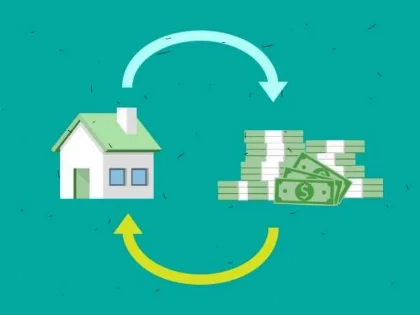5 Things Your Homeowners Insurance Won't Cover
Typically, your house and any other structures on your land are covered by homeowner's insurance. Additionally, it offers personal property coverage for items that you can lose to theft, such as electronics, furniture, and those well-known TikTok stepper machines. Your homeowners insurance will not, however, cover everything. The following five items are excluded from homeowner's insurance coverage: 1. The termites.
1. Natural catastrophes

2. Insect termites
 Termites are stealthy carnivores that can seriously compromise a home's structure—oftentimes without anybody noticing. They eat the cellulose that's included in wood. Certain woods, like redwood and bamboo, are naturally resistant to termites, but other materials, like raw lumber, are more vulnerable.
If a homeowner hears a hollow sound when they tap the wood, they may have termites. Mud tubes or tunnels in the earth surrounding the foundation may also be signs of infestation. The shedding of wings and a papery or spongy texture to the wood are also indicative of termite activity.
Keeping crawl spaces and the area surrounding the foundation dry is a crucial part of prevention since termites are drawn to moisture. Additionally, termites may find moisture in clogged rain gutters and condensation pans in air conditioners.
Termites are stealthy carnivores that can seriously compromise a home's structure—oftentimes without anybody noticing. They eat the cellulose that's included in wood. Certain woods, like redwood and bamboo, are naturally resistant to termites, but other materials, like raw lumber, are more vulnerable.
If a homeowner hears a hollow sound when they tap the wood, they may have termites. Mud tubes or tunnels in the earth surrounding the foundation may also be signs of infestation. The shedding of wings and a papery or spongy texture to the wood are also indicative of termite activity.
Keeping crawl spaces and the area surrounding the foundation dry is a crucial part of prevention since termites are drawn to moisture. Additionally, termites may find moisture in clogged rain gutters and condensation pans in air conditioners.
3. Mould
 One kind of fungus that thrives in environments with moisture and oxygen is mold. Moulds are known to exist in over 100,000 species and exhibit a diverse array of hues, forms, and textures.
Mould spores are abundant in outdoor areas and can be dispersed by light winds. They help to decompose organic materials such as dead plants and fallen leaves. However, mould can cause severe breathing problems and skin irritation indoors.
In places that retain moisture, like beneath sinks or the walls of a basement, keep an eye out for faint stains or musty smells. By quickly sealing leaks and using dehumidifiers to reduce humidity, mold can be prevented from forming. Prolonged exposure to mould spores can lead to severe health issues like asthma, chronic bronchitis, and emphysema.
One kind of fungus that thrives in environments with moisture and oxygen is mold. Moulds are known to exist in over 100,000 species and exhibit a diverse array of hues, forms, and textures.
Mould spores are abundant in outdoor areas and can be dispersed by light winds. They help to decompose organic materials such as dead plants and fallen leaves. However, mould can cause severe breathing problems and skin irritation indoors.
In places that retain moisture, like beneath sinks or the walls of a basement, keep an eye out for faint stains or musty smells. By quickly sealing leaks and using dehumidifiers to reduce humidity, mold can be prevented from forming. Prolonged exposure to mould spores can lead to severe health issues like asthma, chronic bronchitis, and emphysema.
4. Inundations
 Flooding may have a catastrophic effect on towns and families. The effects can be anything from expensive and sudden water damage to long-lasting structural issues.
Climate patterns and location can influence the risk of flooding for a residence can be influenced by climatic patterns and location. For example, regions with heavy precipitation or a history of flooding are more likely to flood. Because of paved surfaces that hinder ground absorption and roofs that funnel rainfall, urban environments are also more vulnerable to floods.
To prepare for floods, monitor local weather patterns, including temperature and rainfall changes, and be vigilant for any unusual animal behavior that may predict impending disasters. Once floodwater gets inside your home, it can harm furnishings, appliances, electrical systems, and personal items. Furthermore, floodwater can contaminate your home's plumbing system, posing a health risk.
Flooding may have a catastrophic effect on towns and families. The effects can be anything from expensive and sudden water damage to long-lasting structural issues.
Climate patterns and location can influence the risk of flooding for a residence can be influenced by climatic patterns and location. For example, regions with heavy precipitation or a history of flooding are more likely to flood. Because of paved surfaces that hinder ground absorption and roofs that funnel rainfall, urban environments are also more vulnerable to floods.
To prepare for floods, monitor local weather patterns, including temperature and rainfall changes, and be vigilant for any unusual animal behavior that may predict impending disasters. Once floodwater gets inside your home, it can harm furnishings, appliances, electrical systems, and personal items. Furthermore, floodwater can contaminate your home's plumbing system, posing a health risk.






